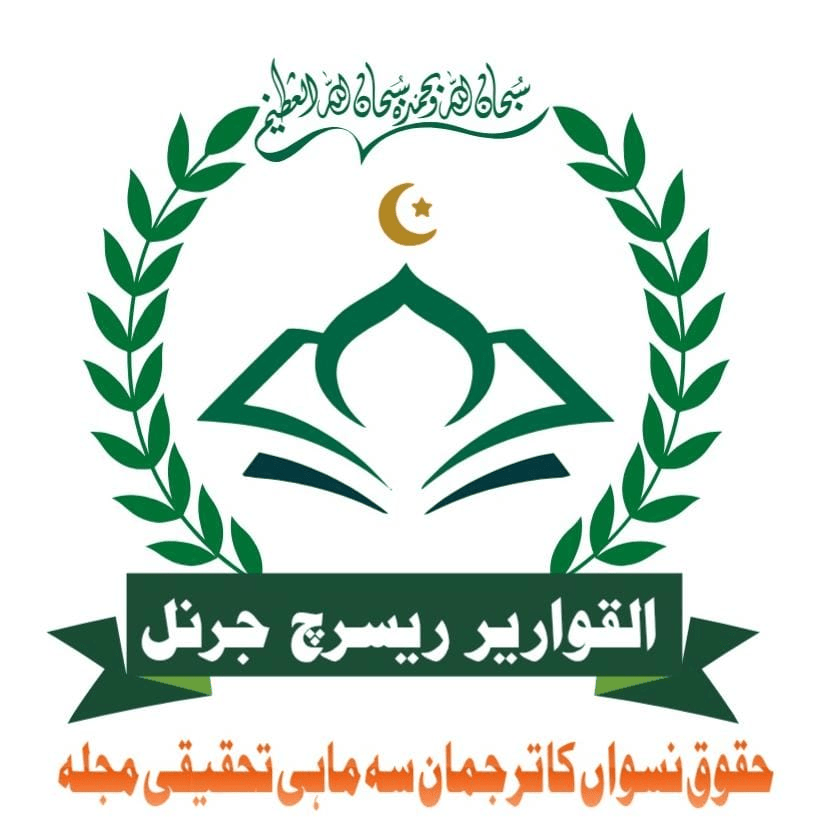پاکستان میں خواتین کے حقوق کے فروغ میں وفاقی و صوبائی اداروں کا کردار: تحقیقی و تجزیاتی مطالعہ
The Role of Federal and Provincial Institutions in Promoting Women’s Rights in Pakistan: An Analytical Study
DOI:
https://doi.org/10.1000/yveewr79Keywords:
Women’s Rights, Institutional Reforms, Gender Equality, Pakistan, Policy ImplementationAbstract
This study critically examines the role of Pakistan’s federal and provincial institutions in safeguarding and promoting women’s rights within the framework of law, policy, and institutional reforms. The research focuses on four major institutions: the Council of Islamic Ideology (CII), which provides religious and legislative recommendations regarding women’s issues; the National Commission on the Status of Women (NCSW), which works as a watchdog body to ensure gender equality in legal and policy frameworks; the Punjab Women Development Department (PWDD), which implements provincial-level welfare and empowerment programs; and the Shaheed Benazir Bhutto Human Rights Center for Women (SBBHRCW), which provides immediate legal and psychological assistance to women in distress. The findings suggest that these institutions have contributed significantly to policy-making, legal reforms, awareness campaigns, and the provision of support services for women. Nevertheless, the study also highlights persistent challenges such as weak implementation mechanisms, bureaucratic hurdles, lack of financial and human resources, and entrenched socio-cultural barriers that restrict the full realization of women’s rights. By analyzing the strengths and limitations of these institutions, the research identifies the need for stronger coordination among federal and provincial bodies, increased resource allocation, and effective monitoring systems. This study ultimately emphasizes that sustainable progress in women’s rights in Pakistan depends on institutional commitment, legislative support, and societal transformation.
Downloads
Downloads
Published
Issue
Section
License

This work is licensed under a Creative Commons Attribution-NonCommercial-NoDerivatives 4.0 International License.




